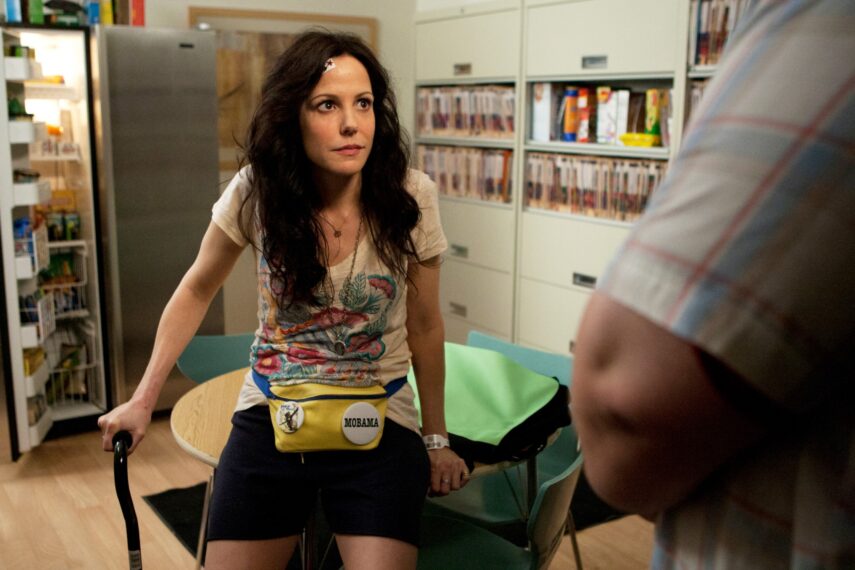Daisy Ridley reveals she's been diagnosed with Graves' disease after mistakenly blaming her symptoms on a 'really stressful' film role Have YOU got a story? Email [email protected] By Niomi Harris For Mailonline Published: 16:13, 6 August 2024 | Updated: 16:18, 6 August 2024 e-mail View comments Daisy Ridley has revealed she's been diagnosed with Graves' disease. The actress, 32, opened up about her experience with the autoimmune disorder for the first time during an interview with Women's Health magazine , in which she told how she mistakenly blamed her symptoms on a 'really stressful' film role.
Graves’ disease is an autoimmune condition where your immune system produces antibodies that cause the thyroid to produce too much thyroid hormone, according to the NHS . The cause of Graves' disease is unknown, but it mostly affects young or middle-aged women and often runs in families. Opening up about her health battle, the Star Wars star shared that it was her 'first time' speaking publicly about her Graves' disease.

Daisy Ridley has revealed she's been diagnosed with Graves' disease The actress, 32, told how she mistakenly blamed her symptoms on a 'really stressful' film role After suffering from symptoms including hot flashes and fatigue following the filming of psychological thriller Magpie, Daisy visited her GP, having put her health woes down to the role. She shared: 'I thought, Well, I’ve just played a really stressful role; presumably that’s why I feel poorly.' However, she was then urged to see an endocrinologist [a medical practitioner who treats patients with hormone-related diseases], who later informed her that her symptoms can sometimes referred to as 'tired but wired.
' The star had struggled with symptoms that included hand tremors, racing heart rate, weight loss and fatigue. After being made aware of what could be happening to her, Daisy had a moment of realisation, noting: 'It was funny, I was like, "Oh, I just thought I was annoyed at the world," but turns out everything is functioning so quickly, you can’t chill out.' But while the Young Woman and the Sea star felt sad over her health condition, she also felt some frustration seeing as she was someone who physically took good care of herself.
Despite this, Daisy embarked on some lifestyle changes to help her manage the disease, including eating a mindful diet which she's 'not super strict about' and practicing self-care including exercise to 'make myself feel good.' After implementing these changes, the beauty explained that she found herself feeling better and more aware of life around her, noting: that she 'didn’t realize how bad I felt before.' After suffering from symptoms including hot flashes and fatigue following the filming of psychological thriller Magpie, Daisy visited her GP, having put her health woes down to the role The star had struggled with symptoms that included hand tremors, racing heart rate, weight loss and fatigue Read More Daisy Ridley reveals she developed a 'leaky gut' due to the 'stress' of her sudden Star Wars fame Daisy shared that she's continuing to learn how to listen to her body, something that many women bare not inclined to do.
She said: 'We all read the stats about women being undiagnosed or underdiagnosed and sort of coming to terms with saying, "I really, actually don’t feel good" and not going, "I’m fine, I’m fine, I’m fine, I’m fine." It’s just normalized to not feel good.' This isn't the first time Daisy has spoken out about her health battles.
Daisy opened up about how her career success affected her health after she shot to fame with her starring role in the Star Wars franchise. The British actress made her big screen debut in 2015 as Rey in Star Wars: The Force Awakens. However, the star has now admitted that she felt significant anxiety and stress after becoming the face of the major film project which led her to develop a 'leaky gut'.
In a new interview with The Times , the actress shared some insight into her experience at the time and discussed how high levels of anxiety led to stomach ulcers. Daisy previously opened up about how her career success affected her health after she shot to fame with her starring role in the Star Wars franchise The British actress, 32, made her big screen debut in 2015 as Rey in Star Wars: The Force Awakens She said: 'Essentially, it was a leaky gut,' before noting that she was just 'knackered' from filming. 'I’d never travelled that much, or done press junkets, and my body deals with stress in a very physical way, so my gut was manifesting an emotional reaction to travelling around the world, people saying hello to me in the street.
And me going, "What’s going on?" And worrying.' The star also revealed that she worried about whether or not she was the right pick for the role and claimed it took a long time for her to feel fully confident. WHAT IS GRAVES' DISEASE? According to the American Thyroid Association, Graves’ disease is an autoimmune disease that causes over-activity of the thyroid gland, or hyperthyroidism.
This condition is also known as Basedow’s disease. It’s the most common cause of hyperthyroidism in the United States. The disease, named for Irish doctor Robert Graves, is seven to eight times more common in women than men.
It’s caused by a process that occurs in the immune system during which antibodies are created that cause cells in the body to work harder. They bind with receptors on thyroid cells and cause it to overproduce thyroid hormones, resulting in an overactive thyroid. SYMPTOMS Most of the symptoms associated with Graves’ disease are caused by the over production of thyroid hormones inside sufferers bodies.
Those symptoms include racing heartbeat, tremors in the hands, issues sleeping, weight loss, weakness of the muscles, neuropsychiatric symptoms and an intolerance to heat. Graves’ disease may also be associated to inflammation of the eyes. It’s the only form of hyperthyroidism to include such symptoms.
It can cause swelling of the tissues around the eyes and bulging, known to medical professionals as Graves’ ophthalmopathy or orbitopathy. Only one-third of Graves patients are said to experience related eye disease. Only five percent of those patients experience severe enough inflammation to cause severe to permanent vision problems.
Graves-related eye problems occur more often in sufferers who smoke. Some Graves patients may experience a lumpy, red thickening of the skin on their shins. This is called pretibial myxedema and is usually painless and mild.
Pain has been reported in some patients, however. Other symptoms include nervousness, anxiety, irritability and mood swings. -CAITLYN HITT Daisy Ridley NHS Share or comment on this article: Daisy Ridley reveals she's been diagnosed with Graves' disease after mistakenly blaming her symptoms on a 'really stressful' film role e-mail Add comment.



















